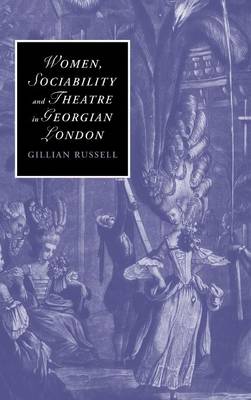Cambridge Studies in Romanticism
2 total works
Mid-eighteenth-century London witnessed a major expansion in public culture as a result of a rapidly commercialising society. Of the many sites of entertainment, the most celebrated (and often notorious) were the Carlisle House club, the Pantheon, and the Ladies Club or Coterie. In this major study of these institutions and the fashionable sociability they epitomised, Gillian Russell examines how they transformed metropolitan cultural life. Associated with lavish masquerades, excesses of fashion, such as elaborate hairstyles, and scandalous intrigues, these venues suggested a feminisation of public life which was profoundly threatening, not least to the theatre of the period. In this highly illustrated and original contribution to the cultural history of the eighteenth century, Russell reveals fresh perspectives on the theatre and on canonical plays such as The School for Scandal, as well as suggesting a prehistory for British Romanticism.
Often regarded as trivial and disposable, printed ephemera, such as tickets, playbills and handbills, was essential in the development of eighteenth-century culture. In this original study, richly illustrated with examples from across the period, Gillian Russell examines the emergence of the cultural category of printed ephemera, its relationship with forms of sociability, the history of the book, and ideas of what constituted the boundaries of literature and literary value. Russell explores the role of contemporary collectors such as Sarah Sophia Banks in preserving such material, arguing for 'ephemerology' as a distinctive strand of popular antiquarianism. Multi-disciplinary in scope, The Ephemeral Eighteenth Century reveals new perspectives on the history of theatre, the fiction of Maria Edgeworth and Jane Austen, and on the history of bibliography, as well as highlighting the continuing relevance of the concept of ephemerality to how we connect through social media today.

